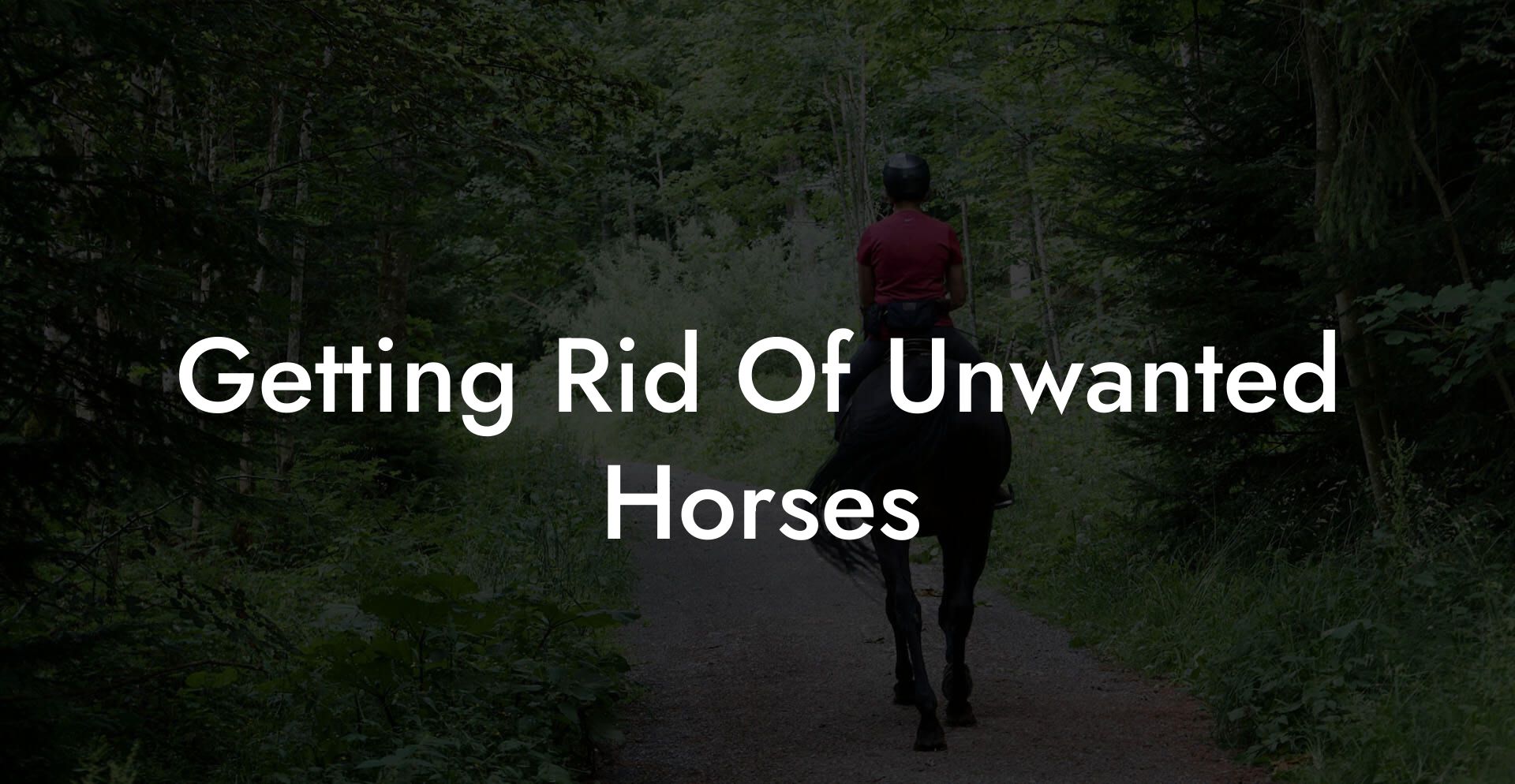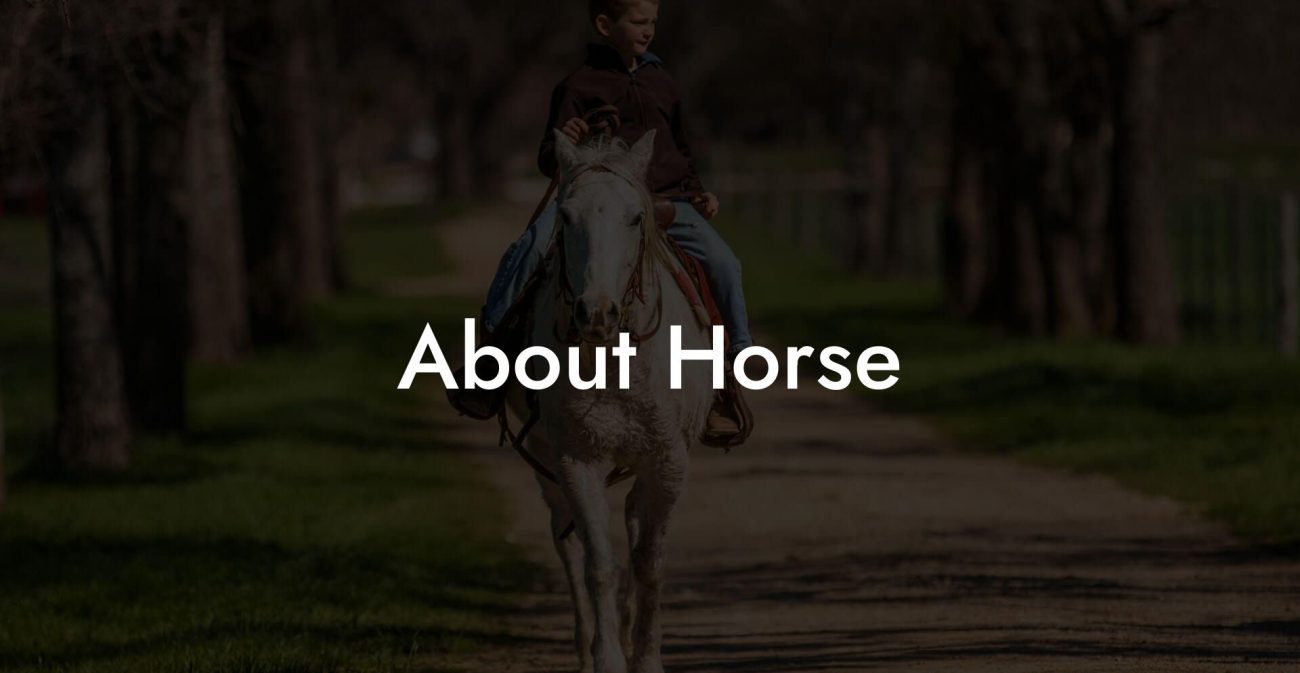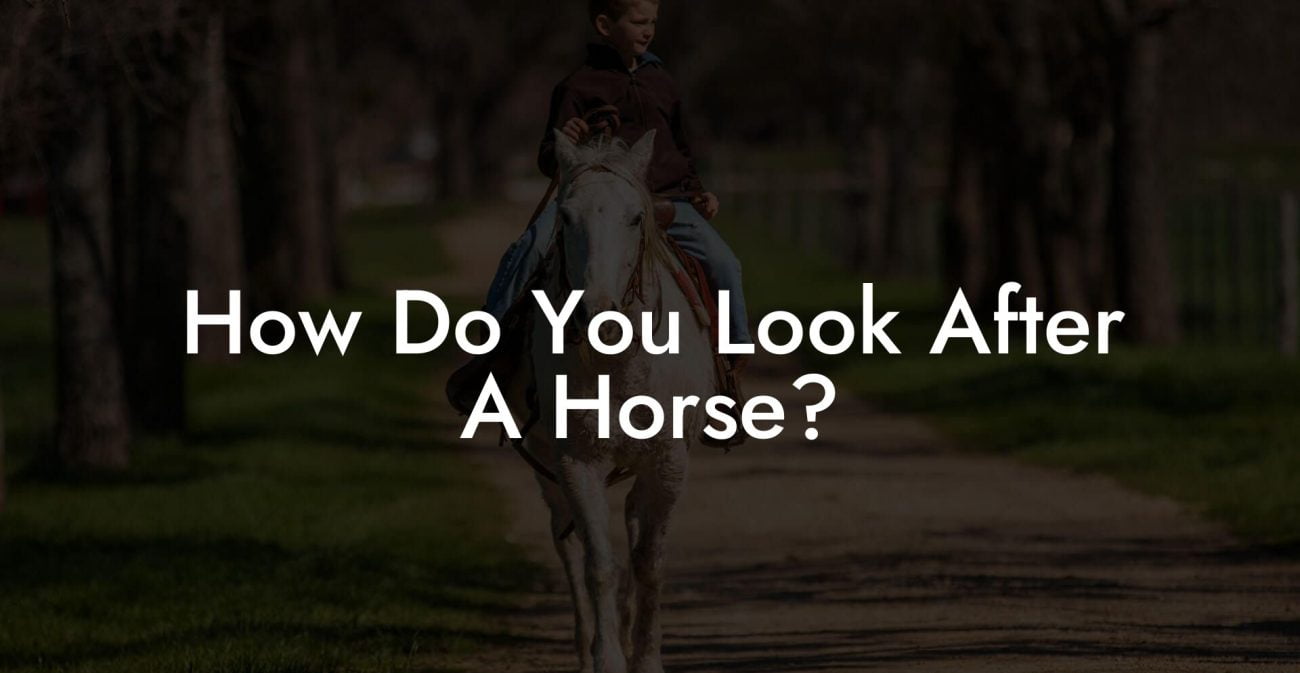Ever found yourself stuck with a horse you just can’t manage anymore, and not in the “oh no, how did I end up with a majestic riding partner?” kind of way, but more like the “help, this horse has become a never-ending challenge” vibe? If you’re nodding along, you’re not alone. In today’s world, rehoming or responsibly reassigning an unwanted horse is a tough, yet necessary journey for many equine enthusiasts, especially millennials and Gen Zers who are all about ethical choices and positive change. This in-depth guide dives headfirst into the world of unwanted horses, offering practical, ethical, and downright savvy strategies to help you navigate the rehoming process without losing your cool, or your sanity.
Quick Links to Useful Sections
- Understanding the Situation: Why Horses Become “Unwanted”
- The Ethical Considerations and Legal Responsibilities of Rehoming Horses
- Exploring Your Options: Rehoming, Selling, or Donating?
- The Importance of Quality Equine Care Throughout the Transition
- Practical Steps for Finding a New Home for Your Horse
- Step 1: Inventory and Documentation
- Step 2: Research Equine Communities and Organizations
- Step 3: Set Up Interviews and Screen Prospective New Owners
- Step 4: Draft a Detailed Transfer Agreement
- Step 5: Stay Connected Post-Transfer
- Utilizing Online Communities and Social Media to Spread the Word
- Navigating the Financial and Logistical Aspects
- Resources and Community Support: Your Next Steps
- Real-Life Stories: Transformations from Unwanted to Cherished
- Case Study 1: The Resilient Racehorse
- Case Study 2: A Farmstead’s New Beginning
- Case Study 3: From Overwhelmed to Empowered
- Overcoming Common Challenges in the Rehoming Process
- Emotional Attachment and Guilt
- Navigating Negative Publicity
- Dealing with Financial Constraints
- Managing Logistical Complexities
- Innovative Tools and Technologies for Modern Equine Rehoming
- Designing a Future Where Every Horse is Cherished
- Common Questions About Rehoming and Caring for Unwanted Horses
- 1. What exactly does it mean when I hear the term “unwanted horse”?
- 2. Is rehoming a horse legally required before surrendering one?
- 3. How do I evaluate the new home to ensure it’s a good fit?
- 4. What role does financial planning play in this process?
- 5. Can I use online platforms effectively for rehoming?
- 6. What resources are available if I feel overwhelmed by the process?
- 7. What should be included in a transfer agreement?
- 8. How can I ensure the horse’s health records are maintained during the transition?
- 9. Is it advisable to stay involved after rehoming?
- 10. What should I do if I encounter negative feedback during rehoming?
- Your New Beginning: From Unwanted to Cherished
Understanding the Situation: Why Horses Become “Unwanted”
The term “unwanted horse” might send shivers down your spine, but it’s important to clarify: this doesn’t mean the horse is without value or love. It simply means that for one reason or another, the current living situation isn’t working out. Horses can become unwanted for numerous reasons, such as changes in the owner’s lifestyle, financial constraints, or a mismatch between the horse’s needs and the owner’s ability to provide care. Sometimes what starts as a promising equine partnership turns into an overwhelming commitment that doesn’t fit with your evolving life circumstances.
Whether it’s an aging companion that now has special health needs or a spirited horse whose energy you can no longer contain, understanding the root cause behind why a horse feels “unwanted” is your first step towards finding a compassionate solution. This guide will walk you through everything from introspection and assessment to actionable steps you can take, while still ensuring that the horse’s well-being remains a top priority.
Our mission here is to provide you with a clear roadmap that respects the horse’s dignity, your responsibility as an owner, and the potential for a fresh start for both parties. We’re diving into ethical rehoming, legal responsibilities, and even creative ways to leverage modern platforms and social media to find the right home for your equine friend.
The Ethical Considerations and Legal Responsibilities of Rehoming Horses
Let’s talk ethics. When it comes to rehoming or parting ways with a horse, ethical considerations aren’t just a checkbox, they’re the guiding principle. Horses are living creatures with thoughts, feelings, and unique personalities. They deserve to be treated with respect and compassion, even if they’ve become “unwanted” in your current situation.
First up, legality. Horse ownership isn’t like owning a pair of sneakers you can toss out; it comes with legal responsibilities. Depending on your location, there might be local, state, or even federal laws governing animal welfare that you need to adhere to. This can include ensuring the horse receives proper care, is housed in a safe environment, and is rehomed to an individual or facility equipped to provide for its needs.
For modern, conscientious owners, the decision to rehome a horse should always be made with the animal’s best interests at heart. Rather than considering the horse as a burden or liability, focus on finding a solution where the animal can thrive in a new environment, preferably with individuals or organizations that share your commitment to high quality equine care.
Remember, the goal is not to “get rid of” your horse in a callous way, but to transition the animal to a new, loving, and supportive home. Honesty, transparency, and ethical decision making are key. Consulting with equine welfare experts and legal advisors can help you navigate this process without compromising on ethics or running afoul of the law.
Exploring Your Options: Rehoming, Selling, or Donating?
Once you’ve accepted that letting go is the humane, responsible step forward, the next big question looms: what are your options? The answer is multifaceted. Depending on your circumstances, you might consider rehoming your horse to a new owner, selling it to someone who’s ready for a fresh start, or even donating the animal to an equine rescue organization.
Rehoming: This refers to the process of finding a new, qualified home where your horse can thrive. It’s a popular choice among owners who want to ensure that their horse continues to receive proper care and attention. Rehoming might involve connecting with equine adoption networks, reaching out to local stables, or leveraging social media platforms that cater to animal lovers and rescue groups.
Selling: Sometimes, the financial realities are part of the equation. Selling your horse may help cover some of the costs you’ve invested over time, such as feeding, veterinary care, and shelter. However, selling should be approached with caution, always vet potential buyers thoroughly to ensure they’re fully equipped to care for a horse.
Donating: If money isn’t your main concern and you’re more focused on the horse’s well-being, donating your horse to a rescue or sanctuary might be the ideal route. Numerous equine rescue organizations specialize in rehabilitating horses and finding them new homes or sustainable environments in which they can live out their days happily.
Each option has its pros and cons, but the common thread is a deep commitment to the animal’s long-term health and happiness. Evaluating your personal circumstances, financial situation, and the specific needs of your horse will help guide your decision.
No matter which path you choose, transparency is non-negotiable. Prospective new owners or organizations need to know the full history of the horse, including any health issues or behavioral quirks. A detailed, honest exchange is the starting point for a successful transition.
The Importance of Quality Equine Care Throughout the Transition
Before you start posting ads and planning meetups, let’s address one critical point: the care of your horse must remain a paramount concern during this transition. It might be tempting to see rehoming as an easy fix, but for the horse, it’s a major life change that requires stability, comfort, and expert care.
Health Check-Ups: Regular veterinary visits are a must. Ensure your horse is up-to-date on vaccinations, deworming, dental care, and any medical needs that might arise. A thorough health check not only safeguards the horse but also reassures prospective new owners.
Proper nutrition: Regardless of its current status, your horse needs a balanced diet rich in quality hay, grains, and necessary supplements. A well-fed horse is a healthy and content horse, which can significantly ease the stress of transitioning to a new environment.
stable Environment: Whether it’s your own pasture or a temporary boarding situation during the rehoming process, make sure the horse is living in a clean, secure, and comfortable environment. Adequate shelter, access to fresh water, and regular exercise routines all play a part in keeping stress at bay.
Emotional Well-Being: Horses are highly social and emotionally intelligent creatures. They form deep bonds and can experience anxiety when facing dramatic changes. Keeping a routine, providing gentle handling, and even engaging in therapeutic riding sessions are ways to help your horse feel secure during the transition.
In short, even while you're sorting out the best future for your horse, ensure that every aspect of its health care is maintained. After all, a happy, healthy horse is far more likely to flourish in a new setting.
Practical Steps for Finding a New Home for Your Horse
So, you’ve decided that a new home is the best option for your horse. Next up: how do you find that perfect new owner or sanctuary that will honor your horse’s needs? Here are some actionable steps to get you on the right track:
Step 1: Inventory and Documentation
Before you do anything else, compile a detailed inventory of your horse’s health records, behavioral traits, and any special needs it may have. Take high-quality photographs and even record a short video that showcases your horse’s personality. These tools not only help you market the horse ethically but can also give prospective adopters or buyers a clear picture of what they’re about to inherit.
Step 2: Research Equine Communities and Organizations
The internet is your friend, especially when it comes to leveraging social media. There are countless equine communities online on platforms like Facebook, Instagram, and even TikTok. Join these groups to learn about current best practices in horse rehoming, network with others who’ve been through similar challenges, and post about your horse responsibly.
Additionally, contact local equine rescue organizations, sanctuaries, and reputable horse dealerships. These groups often have waiting lists for horses or can spread the word across a broader network of enthusiasts and potential adopters.
Step 3: Set Up Interviews and Screen Prospective New Owners
Screening isn’t just about protecting your investment, it’s about ensuring your horse ends up in a safe and loving environment. Arrange for meetings or even trial visits where you can observe how your horse interacts with the potential new owner. Ask detailed questions about their past equine experience, their setup, and how they plan to care for your horse.
Step 4: Draft a Detailed Transfer Agreement
Once you find a suitable match, solidify the arrangement with a comprehensive transfer agreement. This legally binding document should outline the responsibilities of both parties, including care routines, financial obligations, and provisions for ongoing health support. It’s a safety net that protects both the horse and you.
Step 5: Stay Connected Post-Transfer
Your job isn’t quite done once the horse has left your stable. A reputable new owner will appreciate updates, and you may need to offer follow-up support as your horse transitions to its new environment. Consider scheduling periodic check-ins to ensure the transition remains smooth and the horse continues to receive the high-quality care it deserves.
These steps, when executed with care and precision, help ensure that your horse isn’t just a listing online but a living creature moving on to a better, more suitable chapter in its life.
Utilizing Online Communities and Social Media to Spread the Word
In this digital age, your next best friend in helping your horse find a new home might just be a smartphone. Social media isn’t just for sharing memes, it’s a powerful tool for animal rescue and rehoming. Whether you’re posting in specialized equine groups or using hashtags like #HorseRehoming, #EquineRescue, and #AdoptDontShop, tapping into these networks can exponentially increase your chances of finding the perfect match.
Engage Creatively: Use vibrant images, authentic videos, and a heartfelt narrative to tell your horse’s story. A well-crafted post that highlights your horse’s unique personality, history, and charm can make all the difference between a scroll-by and a rescue inquiry.
Leverage Influencers and Community Leaders: Reach out to popular equine influencers and bloggers who resonate with Gen Z and millennials. Their endorsement or a simple share can dramatically extend the reach of your post, potentially connecting you with someone who’s been looking for just the kind of horse you have.
Online Directories and Listings: Don’t forget about online directories dedicated to animal rescue and horse rehoming. Websites such as Equine Rescue Network, local rescue organization pages, and even classified ad sites often have dedicated sections for horses in need.
Social media is not just about throwing your message into the void, it’s about community building. By engaging actively, responding to questions, and staying proactive, you reinforce that you’re committed to a humane, ethical rehoming process and that your horse is more than just an “unwanted” animal, it’s a cherished soul ready for a new start.
Navigating the Financial and Logistical Aspects
Let’s address the elephant in the barn: money and logistics. Rehoming a horse can involve various costs, veterinary fees, transportation, boarding, and sometimes even legal fees. It’s worth planning ahead so that you aren’t caught off guard by hidden expenses.
Budget Planning: Develop a comprehensive budget that outlines all potential costs involved in the rehoming process. This not only helps you manage your finances but also sets clear expectations with prospective new owners should any temporary costs need to be shared.
Transportation Considerations: Whether it’s hiring a professional equine transporter or coordinating with a local rescue organization, plan the logistics of moving your horse safely from one location to another. Adequate transport minimizes stress for both you and the horse.
Legal Consultation: Consult with an attorney or an equine professional who understands local regulations to ensure all necessary documents and transfers are managed legally and ethically. This step is essential in protecting both your interests and the welfare of the horse.
Tackling the financial and logistical sides of rehoming early on enables a smoother process for everyone involved, creating peace of mind that your horse will transition into its new home without any undue stress.
Resources and Community Support: Your Next Steps
You’re not in this alone. The journey to rehome an unwanted horse is laden with both challenges and opportunities, and a wealth of resources exist to support you every step of the way. From local equine rescue organizations and sanctuaries to online communities teeming with advice and success stories, here are some trusted resources:
- Equine Rescue Organizations: Groups like the American Rescue Horse Association (ARHA) and local rescue coalitions specialize in rehoming horses and providing temporary care for those in transition.
- Sanctuaries and Equine Retreats: Sanctuaries offer a safe haven for horses that need a permanent, supportive environment away from the challenges of traditional stabling.
- Social Media Networks: Facebook groups, Instagram pages, and hashtags such as #HorseRehoming and #EquineRescue unite like-minded individuals and organizations eager to help.
- Veterinary and Equine Associations: Organizations like the American Association of Equine Practitioners (AAEP) can provide advice on health care during transitions and help you locate qualified partners for rehoming.
- Local Horse Clubs and Stables: Don’t underestimate the power of local knowledge, a recommendation from a trusted local stable could lead to a proper new home for your horse.
Whether you’re using these resources to connect with prospective adopters or seeking professional advice on managing the rehoming process, tapping into community support is crucial. The path to rehoming is a collaborative effort, and by reaching out to these networks, you’re making a proactive investment in your horse’s future.
Additionally, consider participating in local and online forums dedicated to equine care. Engaging with a community that understands the nuances of horse ownership can provide not only guidance but also solace as you navigate this potentially emotional transition.
Real-Life Stories: Transformations from Unwanted to Cherished
Sometimes, real-life stories offer the clearest picture of what’s possible. Here are a few case studies that illustrate how thoughtful, ethical rehoming can transform the lives of both horses and their former owners:
Case Study 1: The Resilient Racehorse
Meet Blaze, a former racehorse who had run out of his competitive steam. His previous owner, faced with mounting costs and dwindling interest in the racing circuit, made the difficult decision to rehome him. Through networking with local equine rescue groups and a detailed screening process, Blaze was adopted by a sanctuary that specializes in retired athletes. Today, he enjoys gentle exercise, rehabilitative care, and the loving attention of a team devoted to his well-being.
Case Study 2: A Farmstead’s New Beginning
Sarah once prided herself on managing a small hobby farm, complete with a handful of horses. However, life’s unexpected twists made it impossible for her to continue proper care for all her equine charges. After extensive consultation with both veterinarians and local rescue groups, Sarah rehomed an older mare named Daisy to a family that had a deep passion for equine welfare. Daisy now lives out her days in a loving environment, and Sarah often receives updates on Daisy’s happy ever after.
Case Study 3: From Overwhelmed to Empowered
For many owners, admitting that a horse has become too much to handle is a hard pill to swallow. John, a young entrepreneur juggling a hectic lifestyle, found himself overwhelmed by the demands of caring for an energetic young gelding. With a heavy heart, he decided that the best path was to rehome the horse to a friend of a friend who had ample space and experience. What initially felt like a loss eventually turned into a team effort, as John’s proactive networking led to an arrangement that benefitted everyone involved, especially the horse.
These stories serve as a reminder that rehoming is not about failure, it’s a proactive way to secure a better future for your horse while allowing yourself to move forward responsibly.
Overcoming Common Challenges in the Rehoming Process
Let’s be real, no journey is without its bumps. Rehoming a horse can be fraught with challenges ranging from emotional hurdles and financial strain to logistical nightmares. Here are some common obstacles you might encounter and how to overcome them:
Emotional Attachment and Guilt
Letting go of a companion who has been part of your life for years can feel like a betrayal, even when you know it’s the right decision. One of the best ways to navigate guilt and emotional attachment is to remind yourself that providing a new, better environment for your horse is an act of love. It’s not about giving up, it’s about finding a situation where the horse can truly flourish.
Navigating Negative Publicity
Unfortunately, the topic of “unwanted” horses can sometimes attract negative attention online or within your community. Remain transparent about your intentions, lean on the ethical framework of responsible rehoming, and don’t be afraid to explain your decisions. Clear, honest communication with all parties involved can help dispel misunderstandings.
Dealing with Financial Constraints
Money can be a major stumbling block. To manage costs, consider crowdfunding campaigns, grants offered by equine welfare organizations, or even barter arrangements with local rescues for shared resources. A well-planned budget and a little creative thinking can go a long way toward smoothing out financial hurdles.
Managing Logistical Complexities
Transport, temporary boarding, and transition documentation can overwhelm even the most organized owner. Detailed planning and enlisting expert help from vet techs, transport services, and legal advisors will keep these logistical issues from derailing the process.
With the right mindset and thorough preparation, even the most daunting challenges can be overcome, ensuring that the rehoming process remains focused on the ultimate goal: a better, brighter future for your horse.
Innovative Tools and Technologies for Modern Equine Rehoming
In a world where technology touches nearly every facet of our lives, the process of rehoming your horse isn’t left behind. Millennials and Gen Z are especially adept at navigating digital realms, so why not leverage tech to streamline the process?
Online Adoption Platforms: Numerous websites and mobile apps specialize in animal rehoming. These platforms allow you to create detailed profiles for your horse, complete with photos, videos, health records, and personality quizzes. The more comprehensive your profile, the easier it is to connect with potential adopters.
Virtual Meetups and Webinars: Host a live virtual tour or Q&A session where interested parties can meet your horse virtually. This modern twist not only showcases your horse’s temperament but also provides a safe, interactive way to gauge compatibility.
Digital Documentation: Keep all health and legal documents in a secure, easily accessible digital format. Cloud-based storage solutions ensure that critical details are always just a click away, reducing time delays and streamlining the transition process.
Social Media Campaigns: Develop a targeted social media campaign using relevant hashtags like #HorseRehoming, #EquineRescue, and #NewBeginnings. Engaging digital content can be shared widely, transforming your rehoming challenge into a success story with community support.
Embracing technological innovations adds a modern twist to an age-old issue, making the rehoming process not only efficient but also widely accessible to a tech-savvy audience.
Designing a Future Where Every Horse is Cherished
Rehoming doesn’t have to be the end of your involvement with your horse, it can be the start of a new chapter for both of you. Many former owners continue to participate in their horse’s life by offering support, advice, or even volunteering with the rescue organizations that take on these beautiful animals.
Vision a future where every horse is cherished, where rehoming isn’t viewed as a failure but a dynamic transition to specialized care. The hope is that by building robust networks, leveraging technology, and approaching the process with ethical conviction, the concept of an “unwanted” horse will become a relic of the past.
Change starts at the individual level. By sharing your story of rehoming, you contribute to a larger narrative that prioritizes the welfare of these majestic creatures. Whether you’ve been through this process or are planning to move forward, remember that every thoughtfully-made decision helps pave the way for a better standard of equine care.
The aim is to foster a community where the welfare of every horse is paramount, a shared goal that transcends personal challenges, uniting a new generation of owners and enthusiasts dedicated to compassionate, forward-thinking equine management.
Common Questions About Rehoming and Caring for Unwanted Horses
Below are some frequently asked questions that tackle common concerns and provide clarity on the rehoming process. These FAQs are designed to support you and any potential new owners in navigating the complexities of this journey:
1. What exactly does it mean when I hear the term “unwanted horse”?
“Unwanted” refers to a situation where the horse’s current environment or the owner's lifestyle no longer matches what’s best for the animal. It doesn’t reflect the horse’s value but highlights the need for a different setting to ensure the animal’s well-being.
2. Is rehoming a horse legally required before surrendering one?
Depending on your jurisdiction, you might be legally obligated to ensure the safe and humane rehoming of your horse. It’s a good idea to consult local animal welfare guidelines and legal advisors to navigate the process correctly.
3. How do I evaluate the new home to ensure it’s a good fit?
Begin with a thorough screening: check references, visit the facility or home, and ask detailed questions about how the horse will be cared for. A trial visit or meeting between the horse and potential new owner can help you assess compatibility.
4. What role does financial planning play in this process?
Financial planning is critical. From veterinary care and transportation to potential legal fees, budgeting ahead of time will help prevent surprises and ensure that the horse’s needs are fully met during the transition.
5. Can I use online platforms effectively for rehoming?
Absolutely. Online adoption platforms, targeted social media campaigns, and digital documentation can streamline the process, reaching a broader audience and ensuring a transparent, efficient rehoming experience.
6. What resources are available if I feel overwhelmed by the process?
Numerous equine rescue organizations, local horse clubs, and online communities are dedicated to helping owners navigate the rehoming process. Don’t hesitate to reach out for professional advice or peer support.
7. What should be included in a transfer agreement?
A transfer agreement should detail the responsibilities of both parties, covering areas like ongoing care, financial obligations, and transitional support. This document helps protect both the owner's and the new caregiver's interests.
8. How can I ensure the horse’s health records are maintained during the transition?
Keep a digital and physical copy of all veterinary records, vaccination updates, and health assessments. Sharing these records with the new owner builds trust and ensures continuity of care.
9. Is it advisable to stay involved after rehoming?
Yes. Maintaining occasional contact can ensure a smooth transition for your horse and offer reassurance for the new owner. It’s a gesture that emphasizes your commitment to the animal’s long-term well-being.
10. What should I do if I encounter negative feedback during rehoming?
Negative feedback can be tough, but clarity, transparency, and a steadfast commitment to ethical practices will help diffuse misunderstandings. Seek advice from trusted professionals and community leaders to navigate any criticism.
Your New Beginning: From Unwanted to Cherished
Stepping away from a situation that no longer suits you or your horse is more than just a farewell, it’s an opportunity for a brand-new beginning. By navigating the rehoming process ethically, transparently, and innovatively, you’re not only affirming your commitment to responsible equine care but also opening the door to a future where every horse finds a place it truly belongs.
In every challenge lies the seed of transformation. Today’s rehoming journey can become tomorrow’s inspiring success story, a shining example for others grappling with similar predicaments. As you turn the page on this chapter, remember that true equine care transcends ownership; it’s about fostering a community where every horse is valued, cherished, and given the best chance to thrive.
You’re part of a forward-thinking generation that understands the need for innovative, compassionate solutions. Embrace the process with confidence, knowing that every step you take prioritizes the well-being of your horse, the community’s welfare, and the promise of brighter horizons ahead.
Your journey from an “unwanted” label to a celebrated story of renewal is a testament to the power of ethical decisions and community spirit. As you step forward, carry this experience with you, not as regret, but as proof of your strength, responsibility, and unwavering commitment to creating a world where every horse is truly cherished.













